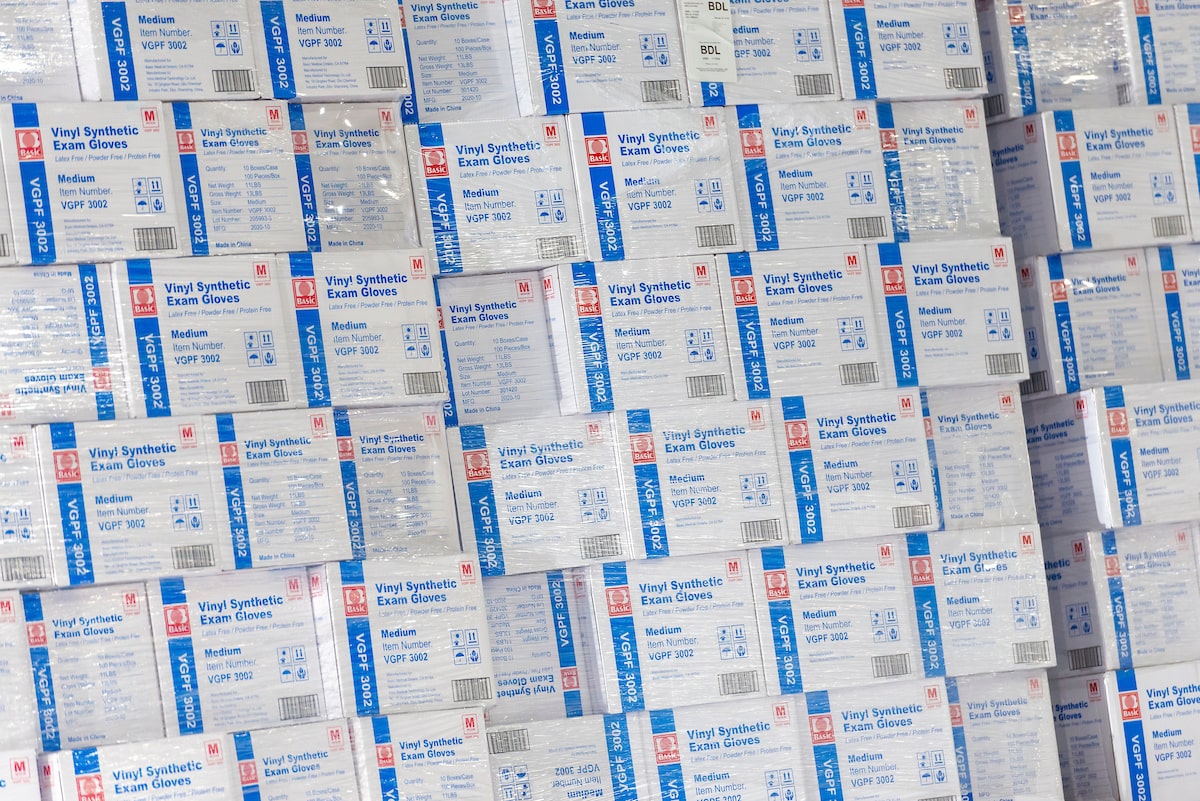<< Back
Price-Gouging During COVID-19: How $40 Toilet Paper Could Lead to a Stronger Law

January 28, 2021
Less than a year ago, state Attorney General William Tong cautioned consumers about “bad actors” charging $25 for hand sanitizer and $40 for a 30-pack of toilet paper early in the COVID-19 pandemic.
At Hartford HealthCare, maintaining adequate supply of N-95 masks and other personal protective equipment for frontline medical workers increased costs from about $3.6 million in 2019 to seven times that amount in 2020.
“There were significant back orders and product just wasn’t available as the demand continued to increase,” said Sharon Fried, Hartford HealthCare’s Vice President of Supply Management. “During March and April, in most cases, we were paying anywhere between four and seven times more for the same product. In other cases, upward of 10 times more. So we needed to do what we needed to do.”
And that was pay the dramatically inflated price.
Earlier this week, Fried joined Tong and state legislators at a news conference seeking greater strength to Connecticut’s price-gouging law through House Bill 5307, which would make it illegal to charge an “unconscionably excessive price” for anything related to an emergency declaration such as COVID-19.
The current statute, said Tong, limits enforcement because:
- It applies only to retail sales.
- Does not adequately define price gouging.
- Does not clearly include leases and rental items.
Tong, in testimony before the General Law Committee Jan. 28, addressed each of those areas.
“As we all have learned,” he said, “there is nothing like a global pandemic to highlight the areas where our laws and systems fall short.”
Previously, Tong said his office received more than 750 price-gouging complaints last year related to COVID-19. He also noted the effects on the state’s healthcare systems.
“Connecticut hospitals are on the front lines in the battle to diagnose, treat and prevent the spread of COVID-19,” he said. “Price-gouging related to personal protective equipment and other types of medical goods and services during this public health emergency threaten the health and safety of healthcare providers and patients.”
Tong referred to them as “unconscionable business acts,” but they weren’t necessarily acts of local or national suppliers. Fried said Hartford HealthCare, pressed by demand, even sought international suppliers.
“What we learned to do is that you really have to be careful,” she said. “We had to partner with our infection-prevention people and others to make sure that the products we were getting were hospital grade. Basically, we were looking at every product that came in the door from the point we ordered it, and obviously paying increased prices, to the point it came into our docks and before it went out to our healthcare workers.”